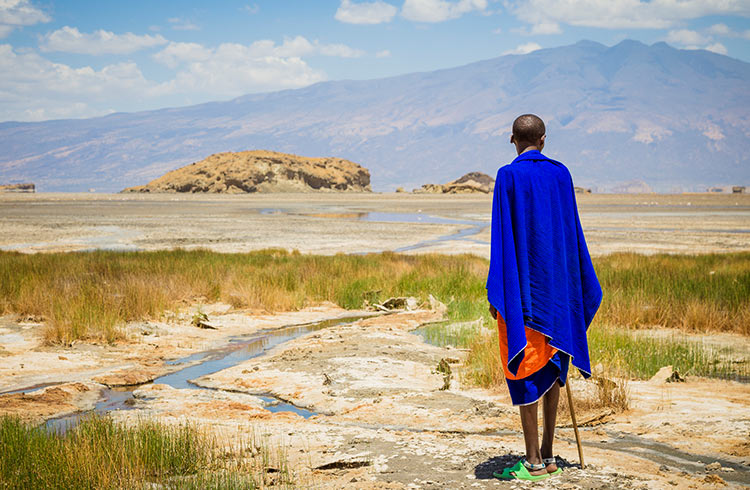In Tanzania, it is considered highly disrespectful to point at someone with your index finger. A behavior so seemingly innocuous in different cultures, carries a significant taboo in this East African country. Imagine the impact on interactions, when a simple gesture translates into an insult.
Learning about cultural taboos in Tanzania unfolds a deeper appreciation of its rich history. In particular, speaking ill of the dead is a serious offense, rooted in the belief that spirits of the deceased hold power over the living. Such taboos are integral in understanding the intricate social fabric of Tanzania.

Understanding Cultural Taboos in Tanzania
Tanzania is a country rich in diverse cultures, each with its own unique customs and taboos. One major cultural taboo is pointing at someone or something with your index finger, which is considered very rude. Instead, people use their entire hand or nod their head to indicate direction. This kind of gesture might seem small, but it can have a big impact on social interactions. Recognizing such nuances helps in better understanding and respecting local customs.
Another significant taboo in Tanzania involves greetings. Failing to greet someone properly is seen as disrespectful. Typically, a handshake accompanied by a warm smile is the norm. It’s also customary to ask about each other’s well-being before diving into a conversation. These small acts go a long way in building respectful relationships.
Eating customs also have their set of taboos. It is impolite to start eating before the eldest person at the table has begun. Furthermore, using your left hand to eat or hand over items is considered unclean. Observing these dining etiquettes is crucial for showing respect during shared meals. For more detailed information, you can refer to this article.
Religious and spiritual beliefs form another layer of taboos. Discussing religion casually or making negative comments about someone’s faith can be highly offensive. Many Tanzanians hold their beliefs deeply, and respecting these beliefs is essential for harmonious coexistence. Being aware of these cultural sensitivities can significantly enhance your experience while visiting or interacting with locals. Learn more about respecting these norms by reading here is the post.
Significance of Social Etiquette and Gestures
Social etiquette and gestures play a crucial role in Tanzanian culture, where respect and formality are highly valued. Simple actions like handshakes and greetings can convey a lot about a person’s upbringing and manners. For instance, younger individuals are expected to show deference by bowing slightly when shaking hands with elders. Ignoring these subtle but important gestures can lead to misunderstandings. Understanding these practices helps in building respectful relationships.
Gestures can also be a way to express emotions and convey messages in non-verbal ways. In Tanzania, it’s common to use the whole hand to point instead of a single finger, as the latter is considered rude. Additionally, maintaining direct eye contact can signify honesty and confidence. However, too much staring can be seen as confrontational. Knowing these nuances can make interactions more respectful and effective.
When it comes to public behavior, Tanzanians are generally conservative. Public displays of affection, such as kissing or hugging, are frowned upon, especially in rural areas. It’s more appropriate to express such emotions privately. Respecting these social norms ensures that visitors and locals can coexist harmoniously. Here is a post detailing more on maintaining respectful interactions.
Understanding the significance of social etiquette extends to respecting religious practices as well. Many Tanzanians are devout followers of their faiths, making it essential to show respect during religious observances. This can include dressing modestly and removing shoes before entering certain places of worship. Such practices help foster mutual respect and understanding. For more insights, you may refer to this article.
Taboos Related to Food and Dining Etiquette
In Tanzania, food and dining etiquette are taken very seriously, with several unwritten rules guiding behavior at the table. One critical taboo is the use of the left hand for eating, which is considered unclean. People are expected to use their right hand to handle food and utensils. This is especially true in communal settings, where sharing meals is common. Respecting this practice is essential for social harmony.
Dining etiquette also involves maintaining a certain level of decorum at the table. Talking with your mouth full or making loud eating noises are seen as impolite. Instead, it’s better to eat quietly and talk only when your mouth is empty. Additionally, waiting for elders to begin eating before you start is a sign of respect. These small acts help foster a sense of respect and unity during meals.
Offering and accepting food follows specific customs as well. It’s customary to offer food multiple times to guests as a sign of generosity. Refusing food outright can be seen as rude. If you’re full, it’s polite to take a small amount or at least express appreciation. This ensures that the host does not feel embarrassed or disrespected.
Certain foods also carry their own taboos. For instance, it’s often considered improper to waste food, given its importance in Tanzanian culture. During celebrations or social gatherings, finishing your plate signifies appreciation for the host’s efforts. Being aware of these taboos will ensure respectful and considerate dining experiences. For further insights, one can refer to this detailed article.
Religious and Spiritual Taboos in Tanzanian Culture
Tanzania is home to various religions, each with its own set of beliefs and practices that must be respected. One major religious taboo is the discussion of different faiths in a negative or derogatory manner. This can lead to tension and conflict among communities. In urban areas, people might be more open-minded, but it’s always best to exercise caution. Respect for diversity ensures peaceful coexistence.
Another important aspect is the respect for places of worship. Entering churches, mosques, or temples requires proper attire, which often means covering your head and dressing modestly. Removing shoes before entering specific sites is also common. These practices show reverence for sacred spaces. Ignoring these customs can be seen as a sign of disrespect.
Spiritual practices, such as traditional healing and ancestral worship, hold significant value in many Tanzanian communities. External influences or criticisms of these practices are frowned upon. Partaking in or observing rituals with an open mind is appreciated. These traditions are deeply rooted in the cultural identity and deserve respect.
Public behavior during religious festivals and observances is another critical area. Making noise, interrupting rituals, or using electronic devices can be seen as highly inappropriate. During such times, it’s vital to adhere to local norms and show patience. Understanding and respecting these moments can greatly enhance mutual respect.
Offering proper greetings and maintaining respectful conduct towards religious figures, such as priests or imams, is also mandatory. Addressing them with the appropriate titles and showing deference is expected. Being aware of these taboos and customs can make interactions much smoother. Observing these guidelines ensures harmony and respect in social interactions.
Key Takeaways
- In Tanzania, pointing with your index finger is rude.
- Using the left hand for eating or handing items is frowned upon.
- Discussing negative aspects of someone’s religion is highly offensive.
- Respect and adhere to local customs and traditions.
- Understanding these taboos ensures smooth social interactions.

